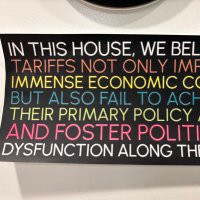
John Cochrane
@johnhcochrane
The Grumpy Economist. Senior Fellow, Hoover Institution. Opinions are mine alone and do not represent the position of the Hoover Institution or Stanford Univ.
ID: 632091340
http://johnhcochrane.com/ 10-07-2012 15:47:53
3,3K Tweet
54,54K Followers
139 Following



This week in PS Say More, we ask John Cochrane what must be done to strengthen the euro, and whether the ambition of establishing the currency as a credible alternative to the dollar should play a role in guiding these efforts. Sign up for our Friday newsletter now so you


A generalization of the Lucas Phillips curve produces inflation that grows after a shock. This specification starts to bridge the chasm between standard models and common beliefs, from John Cochrane nber.org/papers/w33888


💥 New: How the euro can break from its crisis cycle ✍️ John Cochrane, Luis Garicano 🇪🇺🇺🇦 & Klaus Masuch Princeton University Press blogs.lse.ac.uk/europpblog/202…

Crisis Cycle: Challenges, Evolution, and the Future of the Euro, by John Cochrane, Luis Garicano 🇪🇺🇺🇦, and Klaus Masuch, just landed in my mailbox by courtesy of Princeton University Press! I wrote one of the blurbs on the back after reading an advance copy, but let me restate the core


The narrative linking Japan’s stagnation since 1991 to its financial crisis is largely a myth, more recently discussed in this episode of Dwarkesh Podcast. Japan’s growth performance is almost entirely explained by poor demographics. See Table 1 of my paper with Gustavo Ventura











I recently wrote about the ridiculous consequences that industrial policy has on the cruise ship industry. Take a look InsideSources R Street Institute


How does a promising young scholar go from dreams of designing glider planes to the study of physics, and then on to a celebrated career as one of the world's foremost monetary economists? In a "solo" installment of GoodFellows moderated by @BillWhalenCA, John Cochrane—Hoover's


